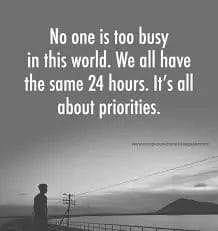Anyone who knows me or has been reading my columns/blogs for any length of time, you already know that I get really upset when I think someone is being taken advantage of, or if I see someone making elitist and misguided judgements against anyone based on their appearance or lifestyle.
That’s why, when someone recently said the following to me I got a little upset:

“The majority of the population don’t get results because they lack the self-discipline and probably could benefit from at least pushing past sitting on the couch every day.”
My argument against most ‘fitness influencers’ and even some supposed fitness professionals in general is that the regimes (typically 6 to 12 weeks) they take their clients through are punitive and have no lasting value. They don’t teach people anything about their relationship with food and their bodies, and they can be physically and emotionally harmful.
But anyway, I initially didn’t answer the comment that this person made, because I don’t tend to argue with people whose minds are already set, and their information is gleaned from David Goggins for psychology and “Mens/Womens Health Magazine” for Physiology, I typically just leave it.
People have the right to disagree with me, and why argue?

Afterwards, someone who overheard this conversation asked me why I didn’t engage.
I didn’t respond to the comment because I don’t agree with what was said about ‘self-discipline’ and ‘sitting on the couch all day,’ which is exceptionally ableist.
Besides the fact that the comment implies that overweight/unfit people do nothing but sit on the couch all day, which makes steam come out of my ears, what they said is very similar to the meaning behind the quote, “we all have the same 24 hours in the day.”
I’ve seen this 24 hours comment a lot, especially in “Nutrition challenge” and fitness circles. It drives me absolutely insane.
Here’s just a few quotes I pulled from online:
“No one is too busy in this world. We all have the same 24 hours. It’s all about priorities.”
“People tell me: “I don’t have the time to do this business.”, Lies; We all have the same 24 hours in a day. You make time for what you want. No Excuses.”
“We all have the same 24 hours in a day. If someone else seems to be accomplishing more than you, they’re sacrificing more than you.”
When I look at these quotes, all I see is blame and humiliation.
Is it just me?
No excuses?
Is everyone else sacrificing more?
Lack of direction?
These things don’t even enter into the equation for an entire cohort of the population. Posting or saying any of this shows a complete lack of insight into the real-life struggles that others have.
Not only that, it rubs their faces into these struggles.
I’m pretty sure that when someone throws around the ‘same 24 hours in a day’ thing, they’re just trying to make themselves feel good by making other people feel like crap.
And although they’re meant to be ‘inspirational,’ these sayings shame others into feeling as though they aren’t trying hard enough to meet other peoples’ expectations for them.
Needless to say, it’s nobody’s job to meet YOUR expectations of how you think they should be running their life.
There are a lot of reasons why someone might not work out, or be ‘successful’ in meeting their health and fitness goals, but I’m willing to bet that none of these reasons are simple.
People are complex, and to sum them up in a blanket comment doesn’t do them justice, nor is it fair.
Sure, the laws of time apply to everyone. Nobody has 27 hours in a day.
But real life, not ‘excuses,’ can impact a person’s ability to just ‘get off the couch’ and live a life that’s the stuff of an inspirational quote.
No matter how hard some people work, life still challenges them beyond their capabilities.
Yes, there are always outliers, and their stories are the ones that make it into the media.
Someone who was living in abject poverty, with no home and living on social welfare, and who is now the CEO of some company.
Even some ‘fitness gurus’ have “failure to success” stories.
People love this stuff, and it’s great for marketing and sales.

But the majority of people have lives that won’t turn out that way, and that has nothing to do with their level of motivation or the number of hours in their day.
If it’s not a matter of ‘motivation’ and ‘grind,’ what creates barriers in peoples’ lives that stop them from achieving financial, health, or fitness goals?
There can be many things, but in this case, we should look to research rather than conjecture and anecdote and the most comprehensive research on this are “The social determinants of health (SDH) as defined by the WHO as ‘non-medical factors that influence health outcomes.’
They’re the kinds of things that can throw a spanner in the works of even the most persistent of people.
We’re not even talking here about those whose chronic disease keeps them from being active and living a ‘normal’ life, but SDH affect them, too.
It’s all inter-connected.
This 2014 study outlines how Social Determinants of Health are inseparably linked to health outcomes.
So yep, motivation doesn’t enter into it.
The social determinants of health include:
- Income and social protection
- Education
- Race
- Gender
- Working conditions
- Housing and environment
- Early childhood development
- Social inclusion and non-discrimination: this can range from having friends to lean on during
- Structural conflict
- Access to adequate health services
- Unemployment and job insecurity
- Food insecurity
Put simply, we all have different priorities and needs.
Social Determinants of Health are why people who are lower socioeconomic status often have poor health compared to their more affluent counterparts.
Someone who is working multiple jobs, shifts, is on their feet all day, and/or is struggling to pay their rent might not give a sh*t about your amazing transformation.
Their 24 hours are exhausting and stressful.
Another person who lives on social welfare, or who is struggling to afford food at all, is probably going to have an issue meeting the latest fad diet guidelines which include organic kale that can only have been grown under the light of a full moon in soil infused with sacred manure!
It’s not that they ‘aren’t trying hard enough.’ Their 24 hours are devoted to putting food on the table as best they can.
How about the person with a medical condition that saps their energy, making them unable to work or even leave the house? Are they supposed to find the ‘motivation’ to force themselves to be active and ‘get off the couch?’
Their 24 hours are spent trying to cope.
These people aren’t lazy, and they don’t lack direction or drive. They also don’t have the same 24 hours a day as someone who shops at the trendy organic market and can afford someone else to clean their home (or who HAS a home) and mind their children.

They don’t even have the same 24 hours as a person who has a 9-5 job and a roof over their head.
These sayings make me so mad, and I’m sitting here writing this from a place of extreme privilege.
For someone in a less fortunate situation? I can’t even imagine how insulting and demoralising they are.
We should remember that not everyone has the things that most of us take for granted: time for food preparation, having someone to do the cleaning (or the time and energy to do it ourselves), food shopping, being able to take sick days, being able to get out of bed, having access to and money for medications, and being able to work from home.
Those are all luxuries.
We often know nothing about the people who see our content or who we interact with, so proclaiming that we all have the same 24 hours, or that they just need to get up off the couch, or that a ‘challenge’ is good for them, can be really off the mark.
It’s also ableist: that is, assuming that everyone is physically and mentally able.
Your only point of comparison should be yourself.
If you want to do a challenge, you do it. But please don’t shame people for not doing it with you.
If you want to eat organic food, go right ahead. But please don’t say that everyone should be eating that way.
Everyone has struggles that we may not know about. What’s good for you, isn’t necessarily good for someone else.

